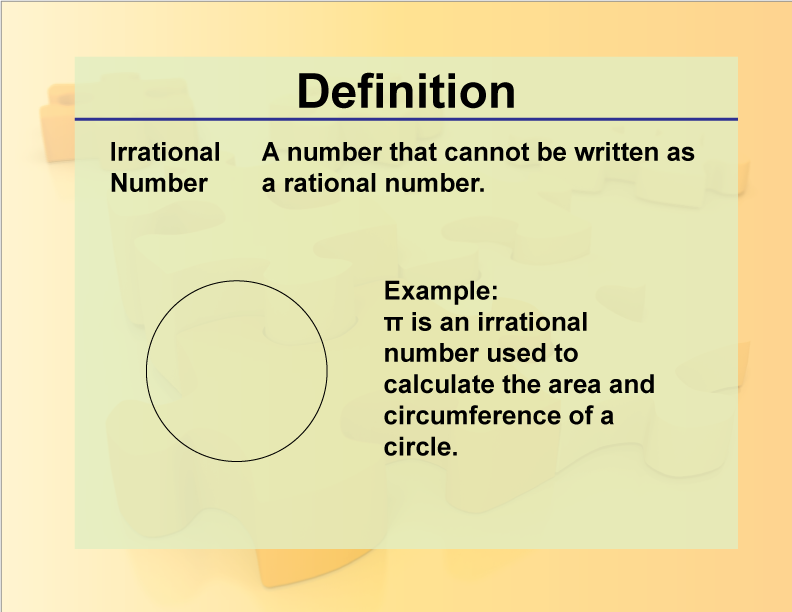
Display Title
Definition--Rationals and Radicals--Irrational Number
Display Title
Irrational Number

Topic
Rationals and Radicals
Definition
An irrational number is a number that cannot be expressed as a ratio of two integers. Its decimal form is non-repeating and non-terminating.
Description
Irrational Numbers are fundamental in the study of Rational Numbers. These numbers cannot be written as simple fractions, and their decimal expansions are infinite and non-repeating. Examples include the square root of 2 and the number pi (π). Understanding irrational numbers is crucial for solving radical equations and for working with radical expressions. They also play a significant role in various fields such as geometry, where the lengths of certain line segments are irrational, and in calculus, where irrational numbers are used in limits and integrals. The concept of irrational numbers extends the number system beyond rational numbers, providing a more complete understanding of the real number line.
For a complete collection of terms related to polynomials click on this link: Rationals and Radicals Collection
| Common Core Standards | CCSS.MATH.CONTENT.HSA.REI.A.2, CCSS.MATH.CONTENT.HSN.RN.A.1, CCSS.MATH.CONTENT.HSF.IF.C.7 |
|---|---|
| Grade Range | 8 - 12 |
| Curriculum Nodes |
Algebra • Rational Expressions and Functions • Rational Expressions |
| Copyright Year | 2020 |
| Keywords | radicals, radical expressions, rational numbers, rational expressions, definitions, glossary term, rational functions |